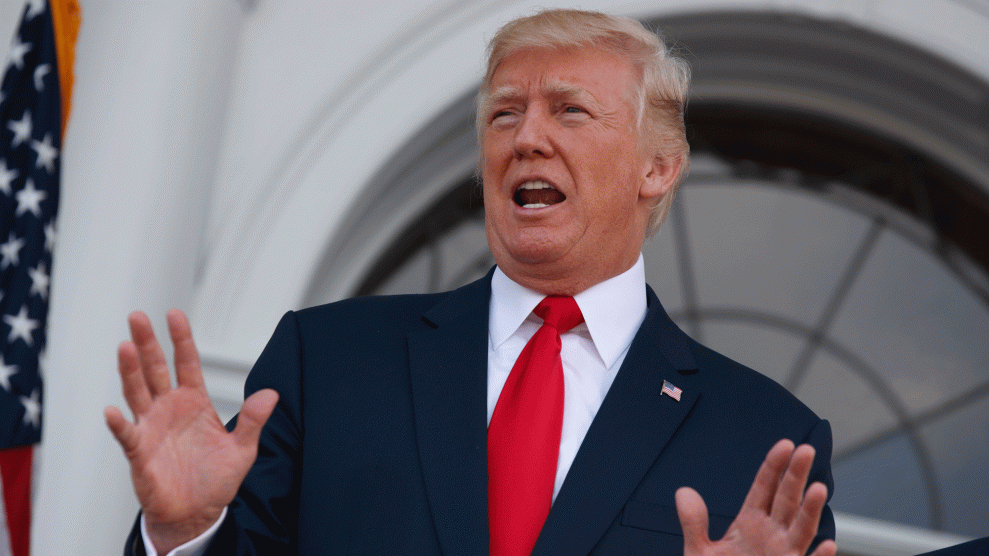
President Trump speaks at the Trump National Golf Club in Bedminster, New JerseyEvan Vucci/AP
Two weeks ago, during an impromptu press briefing from his golf club in Bedminster, New Jersey, President Donald Trump seemed to declare a state of emergency on the opioid epidemic. “The opioid crisis is an emergency, and I’m saying officially, right now, it is an emergency,” he told a crowd of reporters.
Declaring a state of emergency isn’t as simple as saying something is an emergency: An official emergency declaration, like those public health emergency declarations for Zika or Hurricane Sandy, opens up federal funding reserved for crises. That requires signing paperwork, consulting lawyers, and more. Historically, presidents have done the prep work in advance of the emergency announcement, so the announcement has details on the amount of funding that will be made available, where resources will be targeted, and more. Trump’s announcement was short on details; he simply said, “We’re going to draw it up and we’re going to make it a national emergency.”
Yet at this point, it’s unclear whether the Trump administration plans to formally declare an emergency—with the signed paperwork and the funding and the like—or simply call the opioid epidemic an emergency. “I don’t think they’re actually going to officially declare one,” said an administration official familiar with the situation. “He said that it is a national emergency—but that’s little ‘n,’ little ‘e,’ not big ‘n,’ big ‘e.'”
Declaring a state of emergency was the “first and most urgent” recommendation of the president’s opioid commission, which suggested in draft recommendations last month that such an announcement would “empower” Trump’s “cabinet to take bold steps” and “force Congress to focus on funding and empowering the Executive Branch.” Depending on how it’s deployed, such a declaration could open up FEMA’s $1.5 billion Disaster Relief Fund, lead to the deployment of public health workers, and remove barriers to accessing addiction treatment. Some states—including Florida, Maryland, and Arizona—have already declared states of emergency.
There are skeptics of the national emergency approach: Grant Smith, deputy director of national affairs of the Drug Policy Alliance, worries the declaration could be used to empower a law-enforcement-focused approach to the epidemic reminiscent of the war on drugs. Keith Humphreys, a Stanford psychiatry professor who advised the Obama administration on drug policy, notes rather than an emergency declaration Congress could simply vote to allocate more resources to the epidemic, as it did with last year’s $1 billion 21st Century Cures Act. But, he says, Congress “spent the last six months trying to cut Medicaid and cut funding.”
For now, public health advocates are waiting to hear what, if anything, will come from Trump’s announcement. Based on the lack of follow-through from the administration, one would think that the overdose epidemic, which is killing nearly 150 Americans each day, is “the most nonurgent emergency,” says Humphreys. “Where’s the declaration? Every other time we’ve declared an emergency, the president declaring it usually knows what the plan is.”
















